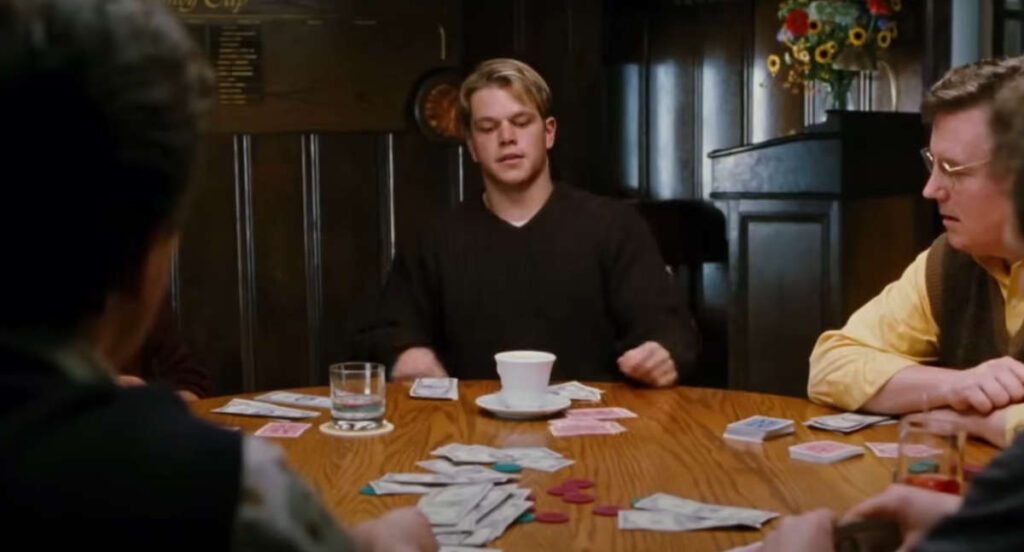Poker is more than a card game—it is a cultural phenomenon that has shaped entertainment, strategy, and competition for centuries.
From smoky saloons of the Old West to digital platforms connecting players worldwide, poker has evolved while maintaining its timeless appeal.
The way communities engage with poker, blending skill and tradition, reflects the same sense of shared enjoyment seen in playing GameZone’s Tongits, where games foster connection and excitement.
The Origins of Poker
Poker’s history stretches back hundreds of years, with roots in several card games across Europe and Asia. Early variations like the French “poque” and the Persian game “as nas” influenced rules and structure of what would eventually become modern poker.
In the 19th century, poker gained prominence in the United States, especially along the Mississippi River. Riverboat gamblers introduced the game to new audiences, solidifying its reputation as a game of both chance and skill.
The simplicity of the rules, combined with the depth of strategy, ensured its survival as it spread across towns and saloons.
Poker’s Role in the Old West
During the American frontier era, poker became a symbol of rugged individualism. Saloons across the West often hosted poker tables, where miners, cowboys, and adventurers gathered. The game was about more than cards—it represented risk-taking, resilience, and social interaction.
Legends of famous poker hands and duels have since become part of American folklore. These stories elevated poker into something larger than life, embedding it into the cultural fabric of the United States.
Poker in the Modern Era
As poker entered the 20th century, it moved from saloons into mainstream society. The creation of official rules, organized tournaments, and dedicated clubs professionalized the game.
Television later played a significant role in showcasing poker to broader audiences, making it a household name.
By the late 20th century, poker was no longer just a pastime for casual players. It had transformed into a global activity with structured competition, rankings, and prestige.
The World Series of Poker (WSOP), founded in 1970, was a major milestone, attracting participants from around the world and setting the stage for professional poker.
The Digital Transformation of Poker
The rise of the internet revolutionized how poker was played and consumed. Online platforms allowed people to learn, practice, and compete from their own homes. This accessibility attracted millions of new players and created a thriving global community.
Digital poker also introduced innovative features like tutorials, tournaments with varied formats, and interactive tools for tracking progress. For many, these platforms offered a gateway to understanding the deeper strategies behind the game, further fueling its popularity.
Poker as Entertainment

Poker has long been a source of storytelling, suspense, and drama. Its presence in movies, television, and literature has elevated the game to an iconic status in entertainment.
Films like Rounders and the James Bond classic Casino Royale depict poker not only as a game of skill but as a stage for tension, intelligence, and human psychology.
Television broadcasts of tournaments, especially with innovations like the “hole card cam,” gave audiences an insider view of strategies unfolding in real time.
The thrill of watching professionals make bold moves or fold under pressure made poker a spectator sport in its own right. This blend of strategy and unpredictability continues to captivate audiences worldwide.
Celebrity Culture and Poker’s Appeal
Poker has also attracted celebrities and public figures, further amplifying its status in popular culture. Musicians, actors, and athletes often participate in televised tournaments, bringing their fan bases into the world of poker.
This crossover with celebrity culture highlights poker’s dual nature—it is both a serious competition and a form of entertainment. The glamour, combined with the intellectual challenge, has kept the game relevant in mainstream media for decades.
Poker as Competitive Play
Beyond its entertainment value, poker thrives as a competitive pursuit. Professional players dedicate years to studying probabilities, game theory, and human behavior. Unlike many card games, poker rewards not only luck but also psychological insight, patience, and discipline.
Tournaments like the WSOP and World Poker Tour (WPT) have elevated the status of poker professionals. These players are often admired for their ability to read opponents, manage pressure, and make calculated decisions under uncertainty.
For fans, following these competitions offers both educational insight and thrilling entertainment.
The Psychology Behind Poker
One of poker’s defining features is its emphasis on human psychology. Bluffing, misdirection, and emotional control are as important as understanding the odds. Successful players know how to project confidence, conceal weakness, and exploit subtle tells from their opponents.
This psychological dimension sets poker apart from many other games. It creates a dynamic environment where every decision carries weight, making the game endlessly fascinating for both players and spectators.
Poker’s Cultural and Global Impact
Poker has transcended borders, adapting to different cultures while maintaining its essence. In Europe, Asia, and Latin America, poker clubs and tournaments have fostered local communities while connecting them to the global stage.
The game has also contributed to the broader conversation about skill-based competition. Debates about whether poker is purely chance-based or primarily strategic have highlighted its unique position at the intersection of entertainment and intellectual challenge.
Poker and Social Connection
Another reason poker endures is its role in fostering social bonds. Whether played at a family gathering, a local club, or a professional tournament, poker encourages interaction, conversation, and camaraderie.
The shared experience of strategizing, bluffing, and competing creates memorable stories that pass from one generation to the next. This social dimension has helped poker maintain its popularity for centuries, ensuring its legacy continues.
Poker’s journey from historic saloons to global tournaments and digital platforms demonstrates its lasting appeal. It is not just a game of cards but a blend of strategy, psychology, and entertainment that resonates across cultures and generations.
By balancing chance with skill and suspense with community, poker has carved out a permanent place in both entertainment and competitive play. Its influence extends beyond the table, shaping media, culture, and social interaction worldwide.
Poker endures because it adapts while preserving its core values. Whether in a high-stakes tournament or a casual home game, the essence of poker remains the same: a test of strategy, patience, and human connection. This balance ensures that poker will remain one of the most iconic and beloved games for years to come.
